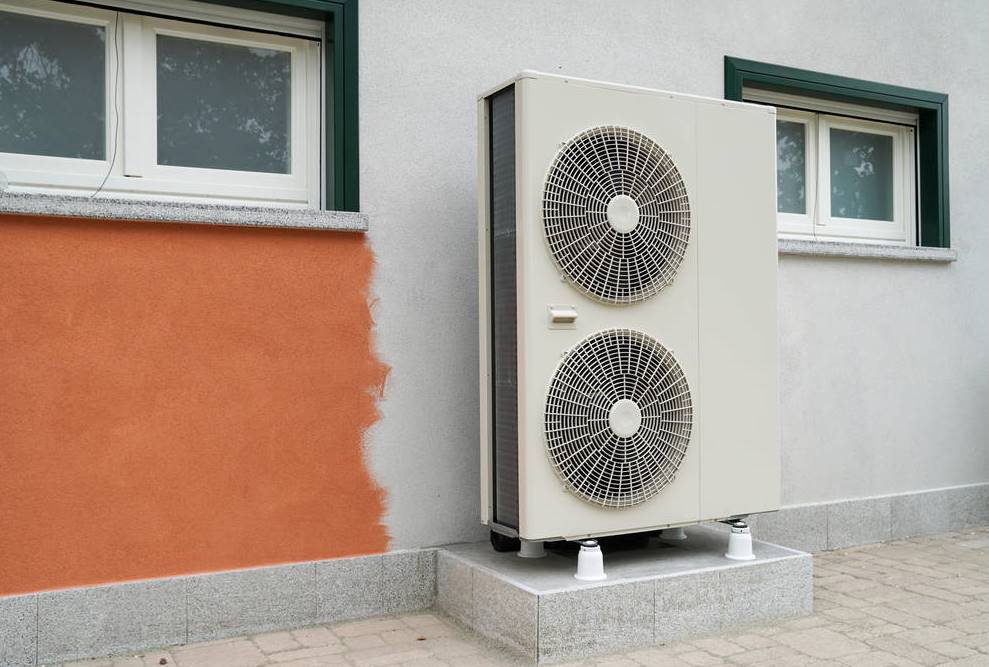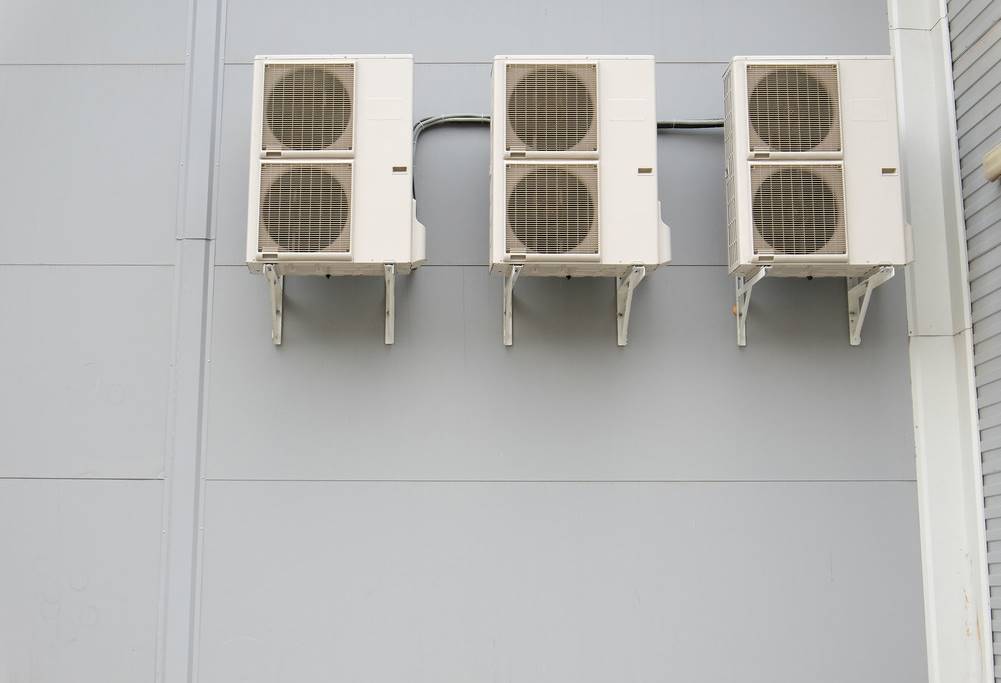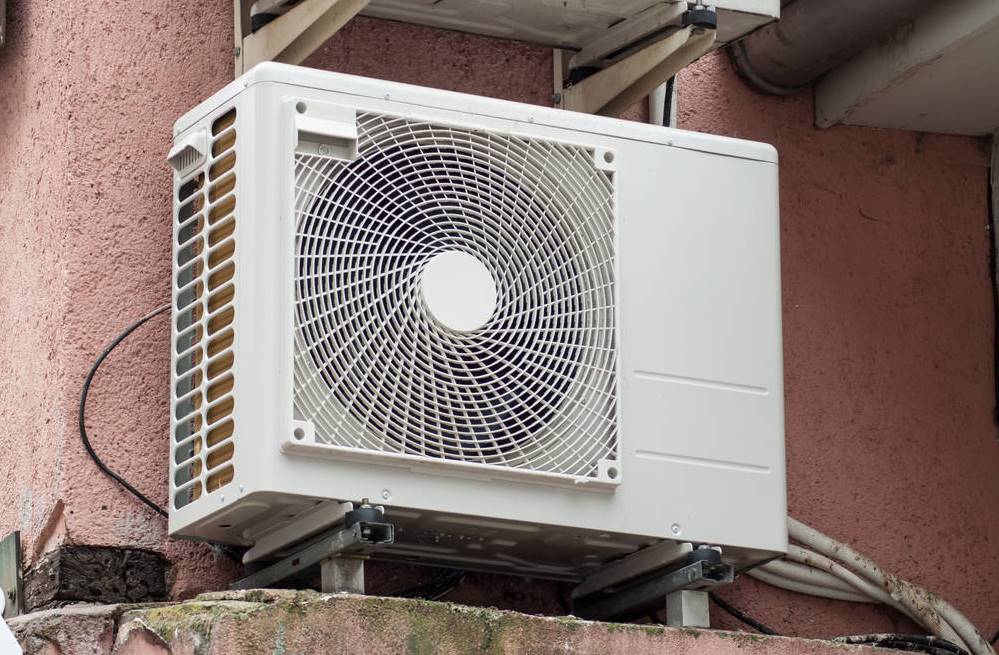Heat pumps are only one of the things that come to mind when you need to cool down your home. An air conditioner is the first thing that comes to mind. A heat pump, however, can combine heating and cooling and is often preferred over dedicated HVAC setups.
Are you considering a heat pump for your home? A modern model may cost 50% less than an electric furnace or baseboard heater. The wide variety of possibilities might make selecting the best model daunting.
Please keep reading to learn more about this ubiquitous home appliance and how it generates heat.
What Is a Heat Pump?
Now, let's talk about heat pumps. A heat pump is an outside component of a heating and cooling system.
It has the cooling capacity of a central air conditioner and the heating capacity of a furnace. A heat pump attracts heat from the outside in winter and removes it in summer. They run on electricity and move heat with a refrigerant to keep you cosy at any time of year.
Dual-purpose systems can eliminate the requirement for homeowners to install a heating system.
Add an electric heat strip to enhance the indoor fan coil in colder climates. In comparison to furnaces, heat pumps are more eco-friendly because they don't use fossil fuels to generate heat.
How A Heat Pump Works
A heat pump is an air conditioner or refrigerator turned inside out. It draws heat from air, geothermal energy, water, or manufacturing waste. It then concentrates and distributes the heat to the target area.
Heat pumps are cheaper and more efficient than boilers and electric heaters because they transfer heat.
The electricity used to run a heat pump is typically several times less than the heat energy transferred.
The COP for a typical residential heat pump is roughly four, meaning that the pump produces energy at a rate four times higher than the electricity required to power it. Modern ones are three to five times more efficient than traditional gas boilers.
Heat pumps in hybrid setups may be used with other heating sources, most frequently gas.
The heat pump's two main components are the compressor, which drives the refrigerant through the refrigeration cycle, and the heat exchanger, which draws heat out of the environment. Another heat exchanger is used to transfer the heat to the heat sink.
Hydronic systems, including radiators, under-floor heating, and forced air systems, are commonly used to heat buildings. Heat pumps can be piped into a storage tank to provide clean hot water or adaptability in hydronic systems.
Many heat pumps can cool and heat a space in summer and winter. Heat pumps are used in manufacturing to provide hot air, water, steam, or heat materials directly.
Commercial and industrial heat pumps and district heating networks require greater input temperatures than residential ones. These temperatures might be generated from waste heat from industrial processes, data centres, or wastewater.
How Many Varieties Of Heat Pumps Are There?
Heat pump systems use electricity to reverse heat transfer from outside to inside, acting as air conditioners in summer and heaters in winter. They transfer heat rather than produce it, which reduces operational expenses.
The Big Three of Heat Pumps Are:
Air Source
Air source heat pumps are popular due to their low initial cost and ability to effectively exchange heat with ambient air in milder areas.
Water Source
Instead of using air to dissipate heat, water-based heat pumps use water. They are less common because they need to be near a lake, well, or other source of potable water.
Ground Source
Ground-source geothermal heat pumps use underground thermal energy to transfer heat like air-source heat pumps. Because of the ground's consistent temperature, they provide far more efficient operation, but their installation is more expensive and time-consuming.
Heat Pump Sub-Types
There are also heat pump sub-types that further confuse you throughout the selecting process:
Hybrid Heat Pump
Two hybrid systems can enhance efficiency in climates with extreme summers and winters:
- Combination ground/air heat pumps rely on the air supply during mild weather and the ground source during colder weather.
- Running a heat pump and a gas or oil boiler together provides more stable heat at higher efficiency. (Used frequently in homes that already have a boiler.)
Solar Heat Pump
Solar heat pumps use solar panels as a source of energy and are compatible with air and geothermal heat pumps. Therefore, it is possible to thoroughly heat and cool your home with renewable energy using a solar geothermal setup.
Absorption Or Gas-Fired Heat Pump
Systems like these, powered by renewable energy sources like solar, geothermal, or natural gas, are becoming common in commercial settings.
Methods Of Heat Pump Setup
Heat pump systems can be installed in several ways, including:
Split System
Typically, ducted systems have an evaporative interior unit installed in a storage space like a basement or attic and an external condenser and compressor unit housed in a massive metal enclosure.
Package System
A big metal box outside the building houses all the moving parts. (The only thing in the house is the ductwork.)
Mini Split Or "Ductless"
These operate similarly to larger air source heat pumps and are ideal for homes without ductwork.
What are the advantages and disadvantages of using heat pumps?
Learning about the benefits and drawbacks of heat pumps before committing to a system is essential. Heat pumps are an excellent investment for the homeowner because of their many benefits. However, some worries must be taken into account.
We'll closely examine both the pros and cons of heat pumps so you can decide whether to invest in this carbon-reducing heating technology.
Advantages Of Heat Pumps
Installing a heat pump in your home has many benefits. Some heat pump benefits are listed below.
Lower Running Costs
In comparison to combustion-based systems, heat pumps have lower operating costs. System energy efficiency reduces long-term energy expenses.
Less Maintenance
Compared to combustion heating systems, heat pumps are lower maintenance. About once a year, you'll need to inspect some parts of the heat pump, but you can do this without calling in a professional. A professional installer should review the heat pump every three to five years.
Better Safety
Compared to traditional combustion-based heating systems, heat pumps are widely regarded as more secure to operate. This is because they run on electricity instead of burning fuel to warm the room.
Reduced Carbon Emissions
The heat pump system's efficient energy-to-heat ratio will shrink your carbon footprint. The efficiency of water-based heat pumps, for instance, can approach 600%.
Cooling Capabilities
Heat pumps can switch their heating to cooling mode when the temperature outside rises. In the warmer months, air-to-air heat pumps can be easily converted to a cooling mode.
Long Lifespan
Some heat pumps endure 20 years, but most last 15 years. They provide a constant and reliable supply of warmth.
Disadvantages Of Heat Pumps
Heat pumps are among the most cost-effective methods of heating a home. There are, however, some negatives to consider before settling on a heat pump.
High Upfront Cost
Heat pumps are expensive but can lower your energy expenses and carbon footprint.
Difficult To Install
A heat pump installation can be challenging since it requires knowledge of your household's heating and cooling demands and the local geology (in the case of ground source heat pumps).
Questionable Sustainability
Some fluids utilised for heat transmission are controversial because of their long-term viability. Thus, fluids that can be broken down naturally should be used.
Requires Significant Work
Heat pump installation is laborious and might harm your property and landscaping. Penetrations through the building's exterior are an excellent illustration of this requirement.
Issues In Cold Weather
Problems, such as icing in freezing weather, can cause lasting harm to air-source heat pumps. Nevertheless, many up-to-date heat pumps incorporate automatic defrosting features.
They will also be less effective and consume more electricity when cold outside. However, ground-based heat pumps are far more frost-proof.
Not Entirely Carbon Neutral
Heat pumps can't function without electrical power. Their carbon footprint is contingent on the source of the electricity they utilise, even if manufacturing is ignored.
However, they rely less on power for heating (than, say, an electric boiler) and more on the natural environment for their heat energy, which they then use to warm the room.
To live a carbon-free lifestyle, you should look into renewable energy options like solar for your home.
Where Can Heat Pumps Be Most Effectively Utilised?
When deciding between a heat pump and another heating and cooling system, homeowners in different climates should weigh their options. Heat pumps are frequent in regions where winter lows rarely drop below freezing. They can also be used with furnaces for efficient heating in colder climates except the coldest days. The heat pump will switch to the furnace when the outdoor temperature is too low to function efficiently. The term "dual fuel system" is commonly used to describe this setup because of the system's high efficiency and low cost.
Maintenance of the Heat Pump
If you use your heat pump frequently, you should change its filter once a month. If you use it rarely, you can go three months without changing the filter. Remove any debris accumulating on the fans and coils of your heat pump, and get it inspected by a trained professional twice a year at the beginning of the heating and cooling seasons.
The most typical problems with heat pumps include poor airflow, noisy ducts, the wrong refrigerant charge, temperature problems, rattles, squeaks, and grinding sounds. It is essential to track down the cause of the problem. Is the weak airflow confined to a single register, or does it occur across the board? Is the heat pump at fault or the ducting for the unpleasant noise?
When it comes to your heat pump, there are a few problems that you might diagnose and fix on your own before calling in a professional. If the motor won't start, try turning the unit off and back on again. Check for blown fuses and circuit breakers in the pump's ignition system. The thermostat should be checked to ensure it is working correctly. Remove any impediments to airflow and change the filter if it's dirty.
The air ducts' expansion and contraction can be silenced by placing rubber cushions around them. If you hear any rattling or squeaking, check for loose parts and tighten them, or adjust or replace the fan belt that connects the motor to the fan. Expert replacement of the motor's bearings may be required if a grinding noise is produced.
Remember that you should only attempt this repair if you are particularly mechanically inclined. The fact that heat pumps include materials that could be harmful is another good reason to call in the pros for assistance. In the event of a chemical leak or malfunction, you may sustain injuries.
Most heat pumps can be used for another 10–25 years. Regular checkups and maintenance are the most critical factors in pump durability. Those lucky enough to live in warmer regions also have an improved survival rate. If innovations appear before your heat pump breaks, servicing may take too long. Consider the long-term benefits of exploring new heat pump models.
Conclusion
Heat pumps combine the cooling and heating capacities of a central air conditioner with a furnace, making them important to a heating and cooling system. They use power and refrigerant to keep you warm year-round. Because they transmit heat, heat pumps are cheaper and more efficient than boilers and electric heaters.
Heat pumps can be air, water, ground, hybrid, solar, absorption, or gas-fired. Air source heat pumps are popular because they exchange heat with ambient air in milder climates and are inexpensive. Water-based heat pumps dissipate heat with water, while ground-source geothermal heat pumps exploit subsurface thermal energy efficiently.
Hybrid, solar, absorption, and gas-fired heat pumps are also available. Heat pumps can be installed in split, package, small split, or "ductless" systems.
Understand the pros and cons of a heat pump system before buying. Heat pumps are great investments for homeowners, but there are some drawbacks. Heat pump advantages and drawbacks might help homeowners decide whether to buy this carbon-reducing heating technology.
Heat pumps have cheaper running costs, less maintenance, higher safety, lower carbon emissions, cooling capabilities, and a long lifespan. Their cost is low, but installing them requires understanding of your household's heating and cooling demands and local geology.
Heat pumps use natural heat, hence they are not carbon neutral. Renewable energy like solar can help you live carbon-free.
For efficient heating in colder climates, heat pumps can be utilised with furnaces. However, they are laborious and may cause problems in cold weather. Maintenance involves changing filters, removing debris, and having a professional inspect the pump twice a year.
Heat pumps need maintenance to prevent inadequate airflow, noisy ducting, wrong refrigerant charge, temperature issues, rattles, squeaks, and grinding sounds. Check for blown fuses, circuit breakers, thermostats, airflow obstructions, filter changes, air duct expansion and contraction, rattling or squeaking, loose parts, fan belt adjustments, and expert motor bearing replacement to diagnose and remedy problems.
Regular maintenance and checkups help heat pumps survive 10-25 years. Living in warmer regions improves survival, therefore developing novel heat pump technology has long-term benefits.
Content Summary
- Heat pumps have the ability to both heat and cool a home, making them a very versatile option for climate control.
- They may be more cost-efficient overall, typically coming in at a lower price point than electric furnaces or baseboard heaters.
- Heat pumps are devices that transport heat using a refrigerant and are powered by electricity.
- It is not necessary to have separate heating systems if you have a system that serves two purposes.
- Heat pumps are favourable to the environment because they do not require the use of fossil fuels.
- Heat pumps are able to collect heat from a wide variety of sources, including air, water, geothermal energy, and waste.
- In comparison to boilers and electric heaters, they offer superior levels of productivity and cost-effectiveness.
- Heat pumps have a high Coefficient of Performance (COP), which means that they generate more energy than the amount of energy that they consume.
- There are several varieties of heat pumps, the most common of which being air source, water source, and ground source heat pumps.
- In order to improve its overall efficiency, hybrid heat pumps combine a variety of heat sources.
- Renewable energy is generated by solar heat pumps, which utilise solar panels.
- Heat pumps that operate off of gas or absorption are typically seen in commercial environments.
- Split systems, package systems, and ductless mini-splits are the three different types of heat pump installations that are possible.
- Heat pumps have a number of benefits, including cheaper operating costs, reduced maintenance requirements, and improved safety.
- They are able to lower carbon emissions while also providing cooling benefits.
- Heat pumps typically have a lifespan of up to 20 years before they need to be replaced.
- A high initial cost and the requirement of professional installation are both considered to be disadvantages.
- There are some heat transfer fluids that can cause concerns regarding the environment.
- The installation process often requires a lot of manual labour and may have an impact on the landscaping of the property.
- The effectiveness of air-source heat pumps can be negatively impacted by cold weather.
- Since heat pumps require electricity, their carbon footprint is directly proportional to the type of electricity they use.
- Heat pumps are well suited for areas that experience moderate winters but can be used in conjunction with furnaces in areas that experience significantly colder winters.
- Changing the filters and having a professional look them over are both part of routine maintenance.
- Poor airflow, noise, problems with the refrigerant, and temperature concerns are all common issues associated with heat pumps.
- Checking thermostats, fuses, and barriers to airflow are all potential steps in the troubleshooting process.
- The useful life of a heat pump can be increased by regular maintenance.
- It is important to give serious consideration to purchasing a heat pump because it is a long-term investment.
- Investigating new heat pump models could potentially result in long-term benefits.
Frequently Asked Questions About HVAC Systems
A heat pump can both cool and heat your home, while an air conditioner only provides cooling. Heat pumps work by transferring heat, making them versatile for year-round comfort.
Yes, heat pumps are generally energy-efficient because they transfer heat rather than generate it. They can reduce long-term energy expenses and lower utility bills, especially when compared to combustion-based heating systems.
Air-source heat pumps may experience reduced efficiency in extremely cold weather due to frost and low outdoor temperatures. However, they can still be effective when paired with a backup heating source. Ground-source heat pumps are more efficient in cold climates.
Heat pumps require regular maintenance, including changing filters monthly or quarterly, inspecting the system annually, and ensuring proper airflow. Professional inspections should be conducted at the beginning of heating and cooling seasons.
Heat pumps are considered environmentally friendly because they don't rely on fossil fuels for heating. Their energy-efficient operation can significantly reduce carbon emissions, especially if powered by clean electricity sources. However, their overall environmental impact depends on the electricity source used.



